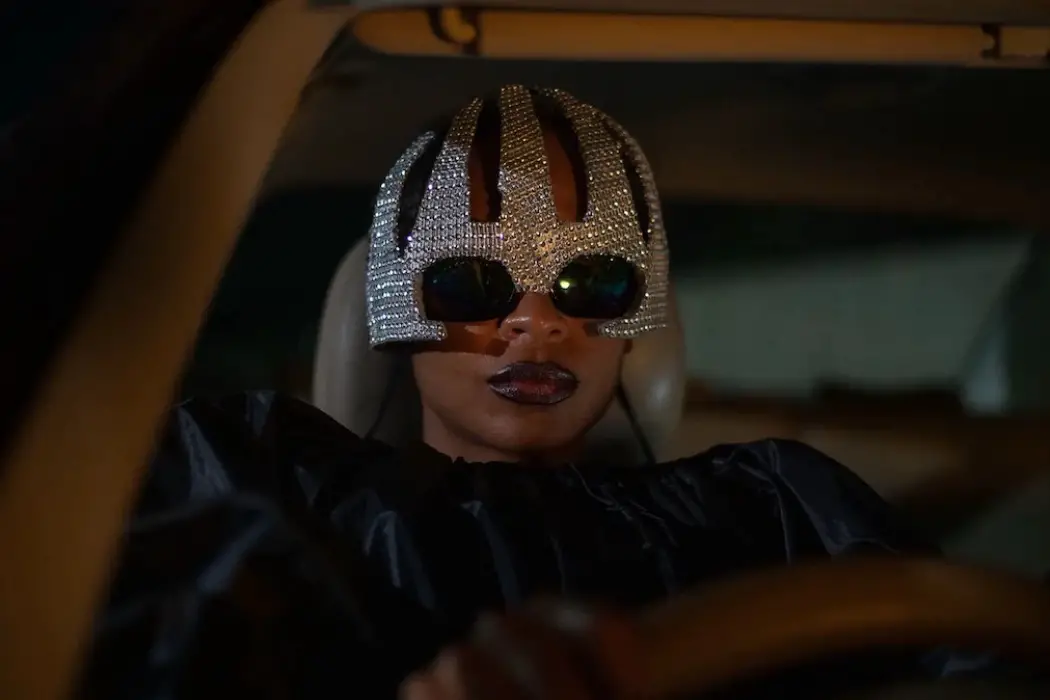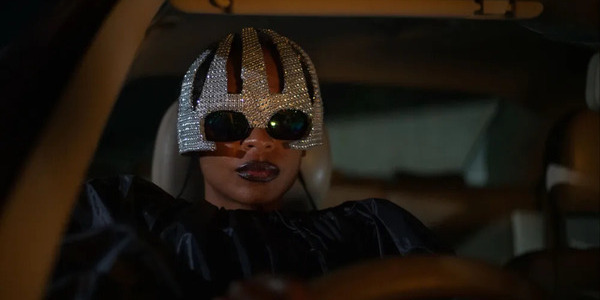Cannes Film Festival 2024: THE SECOND ACT & ON BECOMING A GUINEA FOWL

Wilson is a cinema enthusiast based out of Toronto, Canada.…
This year’s edition of the Cannes Film Festival opened with Quentin Dupieux’s The Second Act (Le Deuxieme Acte), which aims to be thoughtful, but doesn’t necessarily impress in a significant way. The same can’t be said of Rungano Nyoni’s On Becoming a Guinea Fowl, screening as part of the Un Certain Regard section, which is a resounding effort in authoritative storytelling from a rising filmmaker.
The Second Act (Quentin Dupieux)

There’s a scene in Quentin Dupieux’s The Second Act when a character politely appeases an AI-generated director, an act that is quickly questioned by another character. This meandering to an entity of uncertain significance serves as an interesting backbone for much of what the film aims to dissect, which Dupieux is unfortunately not able to fully capitalize on. Much like the aforementioned scene, the film itself panders to the pointlessness of its intentions, rather than enacting something of true significance. There’s plenty of talent both behind and in front of the camera, but the result is somewhat disappointing.
With a star-studded cast that includes Lea Seydoux, Vincent Lindon, Louis Garrel and Raphaël Quenard, four characters meet at a restaurant in what ends up being a rather thinly plotted story. Soon, it’s clear that these characters are actors working on a film generated by AI technology, and the bounds of what’s real versus fictional are called into question.
Dupieux’s use of long takes throughout the film magnifies the blurred line between narration and reality, which helps carry the film’s primary thesis. What’s real and what’s part of a shoot is often ambiguous, and likely purposefully programmed in a manner that’s meant to test the audience’s attention. This, combined with a brilliant turn from all of the film’s leading performers, results in a number of wondrous moments that perhaps indirectly breaks the fourth fall. It’s a subtle realization that proves to be interesting, even if not overly substantial when all is said and done.
The Second Act’s screenplay also lends itself to more refined characterizations as personal tidbits are revealed between ‘takes’, but fails to launch each character into any meaningful heights. It almost feels half baked, much likes the film’s deposition of utilizing AI in filmmaking. After multiple false starts, things don’t necessarily go anywhere, with Dupieux unable to push the envelope in a way that he likely intended to.
There’s a constant barrage of ideas in The Second Act that stalls in its own movements, but perhaps this was all intentional. Dupieux seems to propose that nothing really matters, whether it be technology or the human condition, yet also seems to place value on living life in a consequential way. However, the film can’t seem to really make up its mind, resulting in an all around puzzling experience.
On Becoming a Guinea Fowl (Rungno Nyoni)

Directed with assured confidence, Rungano Nyoni’s On Becoming a Guinea Fowl is an unflinching tale of generational trauma perpetrated through antiquated cultural ideals, and the foils of staying quiet. A powerful film that shatters conventional form, and spotlights the universality of effective storytelling. With A24 handling distribution rights, this will hopefully be a welcoming introduction to Zambian cinema for international audiences.
The film starts off with Shula (Susan Chardy) coming across the lifeless body of her uncle in the middle of the road. Following this unexpected death, her family begins planning for the funeral of a patriarch figure who was seemingly revered by his community. That is, until his past actions are slowly unravelled by his own family, with buried secrets coming to light as his body descends underground.
As a follow-up to her critically lauded I Am Not a Witch, Nyoni clearly establishes herself as a competent director with a unique creative flare. Specifically in Guinea Fowl, she creates an ominous tone that complements the film’s dark narrative exposition with near perfection. There’s a sinister energy brewing in the background, which slowly comes to the foreground as the story progresses. In many ways, the film plays out like a terrifying fable with past (and present) realities serving as the monstrous subtext.
Nyoni also bookends the film with footage from an old children’s television show, which has renowned meaning when gazed through an adult lens, much like the adult women revisiting their own past experiences as victims. By blending together a very modernized sound and tone with the traditions of culture, she turns a simple ideation into something that feels creatively charged.
Chardy’s calculated, yet emotionally resonate performance, also bolsters the narrative’s intriguing narrative. Elizabeth Chisela, who plays Shula’s cousin the film, also helps bring some comedic brevity to the story, all while channeling a rooted darkness that eventually comes to the surface. As with everything else in the film, the depth of storytelling becomes apparent as the layers are slowly peeled back.
The universality of On Becoming a Guinea Fowl’s very culturally-specific themes are amplified through Nyoni’s impressive command of the filmmaking process. She’s created a captivating piece of cinema that resonates as loud as a howling guinea fowl, yet also squeals with a graceful subtlety that is truly its own beast.
Does content like this matter to you?
Become a Member and support film journalism. Unlock access to all of Film Inquiry`s great articles. Join a community of like-minded readers who are passionate about cinema - get access to our private members Network, give back to independent filmmakers, and more.
Wilson is a cinema enthusiast based out of Toronto, Canada. He escapes from his day job by writing random thoughts about cinema on the internet. Although he has a longstanding penchant for Hong Kong cinema, he considers himself to be an advocate for Asian cinema in general. He has been attending the Toronto International Film Festival every year since 2005, and more of his work can be found on his website: www.wilson-kwong.com.











